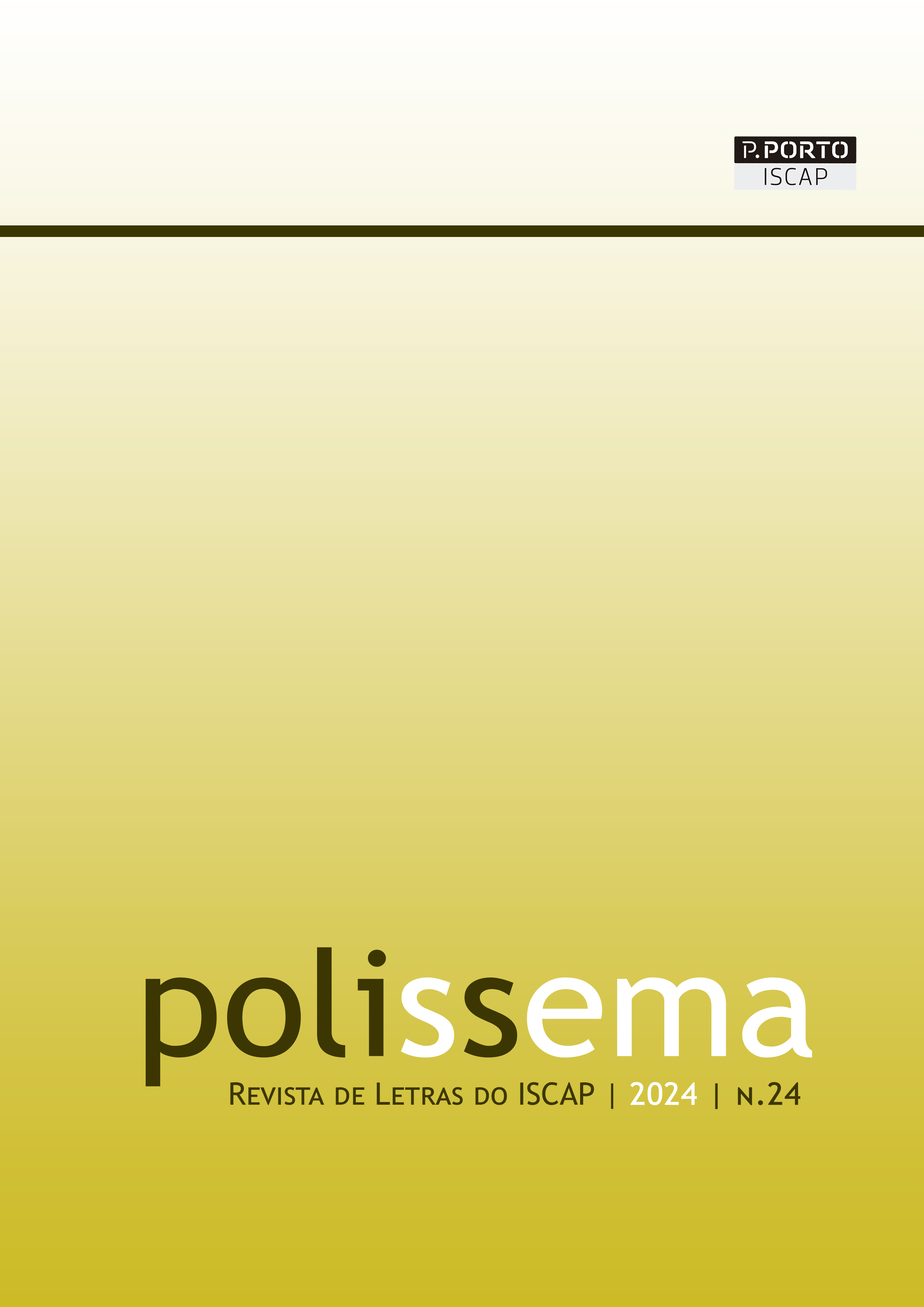LEXICAL INFERENCING IN L3 FRENCH AND SPANISH ACQUISITION
DOI:
https://doi.org/10.34630/polissema.v24i2.5754Keywords:
lexical inference, lexicon, L3, meaning, vocabulary acquisitionAbstract
Lexical inference is a strategy that aims to help the learner in his process of understanding unfamiliar words. During this procedure, the individual puts into practice a set of actions that can be used in various ways and alternately. These actions mainly involve the deduction of the meaning of the word, through the association with a lexicon already known, the identification of words based on their formal similarity with other nearby languages or the contextual and morphological analysis of the words. The process of lexical inference in the acquisition of L3 vocabulary takes on different contours from those identified in the similar process related to L2, distinguishing itself by the possibility of using two languages, L1 and L2, as potential transfer sources. To identify these differences, data were collected in Spanish and French L3learning groups, through the application of questionnaires that led the learners to activate lexical inference. The resultsshow that there is a use of L1 and L2 to reach the comprehension of the word in L3, namely about French, which ends upconfirming the differentiated character of this strategy in the acquisition of vocabulary in L3.
Keywords: inference; lexicon; L3; meaning; vocabulary acquisition.
References
Cavalla, C. (2016). Les apprentissages lexicaux : des unités linguistiques à l’enseignement du FLE. [Université de Grenoble]. Hal theses. https://theses.hal.science/tel-01468588/
Cenoz, J. (2003). The Additive Effect of Bilingualism on Third Language Acquisition: A Review. The International Journal of Bilingualism , 7 (1), 1-5. https://doi.org/10.1177/13670069030070010501
Cenoz, J., Hufeisen , B. & Jessner, U. (2001). Cross-linguistic Influence in Third Language Acquisition. Psycholinguistic Perspectives. Multilingual Matters. https://doi.org/10.21832/9781853595509
De Angelis, G. (2007). Third or Additional Language Acquisition. Multilingual Matters Ltd. https://doi.org/10.1111/j.1473-4192.2008.00201.x
Ecke, P. (2015). Parasitic vocabulary acquisition, cross-linguistic influence, and lexical retrieval in multilinguals. Cambridge University Press, 18 (2), 145-162. https://doi.org/10.1017/S1366728913000722
Falk, Y., & Lindqvist, C. (2023). The L2 proficiency level effect in L3 lexical learning: high- proficiency L2s do not transfer. Nordic Journal of Language Teaching and Learning, 11 (2), 188-208. https://doi.org/10.46364/njltl.v11i2.1021
Giasson, J. (1991). La compréhension en lecture. Revue française de pédagogie, 97, 1-18.
Hall, C., & Ecke, P. (2003). Parasitism as a default mechanism in L3 Vocabulary acquisition. In J. Cenoz, B. Hufeisein, & U. Jessner (Eds.), The Multilingual Lexicon (pp. 71-85). Kluwer Academic Publishers. https://doi.org/10.1007/978-0-306-48367-7_6
Müller-Lancé, J. (2004). A Strategy Model of Multilingual Learning. In J. Cenoz, B. Hufeisen, & U. Jessner (Eds.), The Multilingual Lexicon (pp. 117-132). Kluwer Academic Publishers. https://doi.org/10.1007/978-0-306-48367-7_9
Molnár, T. (2008). Second language versus third language acquisition: A comparison of the English lexical competence of monolingual and bilingual students. Toronto Working Papers in Linguistics, 33 (1), 1-16. https://twpl.library.utoronto.ca/index.php/twpl/article/view/6893
Piccoli, V. (2017). À la recherche de bons indices: inférences et recherches de mot entre locuteurs de langues romanes. Cahiers de praxémique, 68, 1-20. https://doi.org/10.4000/praxematique.4587
Pinto, J. (2015). O papel da L1 e da L2 na aquisição lexical de português L3. liLETRAd, 1, 299-310. http://hdl.handle.net/10451/32880
Quivy, R., & Campenhoudt, L. (2005). Manual de Investigação em Ciências Sociais. Gradiva.
Ringbom, H. (2007). Cross-linguistic Similarity in Foreign Language Learning. Multilingual Matters Ltd. https://doi.org/10.21832/9781853599361
Rodrigo, V. (2018). La comprensión lectora en la enseñanza del español LE/L2, de la teoría a la práctica. Routledge. https://doi.org/10.4324/9781315624662
Solé, I. (1992). Estrategias de Lectura. Editorial Graó.
Wesche, M. B., & Paribakht, T. S. (2009). Lexical Inferencing in First an Second Language, Cross-linguistic Dimensions. Multilingual Matters. https://doi.org/10.21832/9781847692245
Williams, S., & Hammarberg, B. (1998). Language Switches in L3 Production: Implications for a Polyglot Speaking Model. Applied Linguistics, Volume (19) 3, 295-333. https://doi.org/10.1093/applin/19.3.295
Downloads
Published
How to Cite
Issue
Section
License
Copyright (c) 2024 POLISSEMA – ISCAP Journal of Letters

This work is licensed under a Creative Commons Attribution-NonCommercial-NoDerivatives 4.0 International License.


